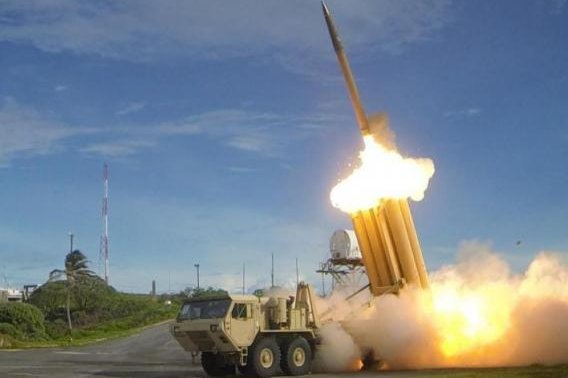THAAD deployment in South Korea may also be followed by the placement of a PAC-3 system near the capital city of Seoul, according to local press. Photo courtesy of the U.S. Missile Defense Agency
SEOUL, July 13 (UPI) -- South Korea has announced a joint decision to deploy THAAD in a central region of the country, but the measure was met with opposition.
South Korean Deputy Defense Minister Ryu Je-seung told reporters on Wednesday placing the U.S. anti-missile defense system in Seongju, in central North Gyeongsang Province would "maximize the military utility of THAAD, while guaranteeing the safety of residents," Yonhap reported.
U.S. Defense Secretary Ashton Carter and his South Korean counterpart Han Min-koo approved the decision, Ryu said.
Residents have demanded a withdrawal of the THAAD deployment that is to take place sometime in late 2017. Activists have launched rallies in protest of the decision, according to local press.
The decision was reportedly made because the confirmed location can defend against North Korea attacks aimed for various U.S. military bases in the South, including bases in Pyeongtaek, Gunsan, and South Korean military and naval bases.
Ryu said Wednesday about half to two-thirds of South Korean territory would be protected through THAAD deployment and 20 million South Koreans would be shielded from a North Korea attack.
THAAD deployment may also be followed by the placement of a PAC-3 system near the capital city of Seoul, according to Yonhap. The PAC-3 is a surface-to-air guided missile interceptor.
The THAAD decision has drawn strong reactions from the public, but on Wednesday the South Korean defense minister said the anti-missile defense system might also be removed if the North Korean nuclear issue is resolved, local news service Newsis reported.
Han made the remarks during a meeting with South Korean parliamentarians that Seoul would "fully consider" a removal if North Korean missile threats come to an end.
In Beijing, foreign ministry spokesman Lu Kang voiced repeated concerns regarding THAAD and asked for the process to be suspended, Yonhap reported.
Lu also said China would take "necessary measures" in response to the U.S.-South Korea decision.















